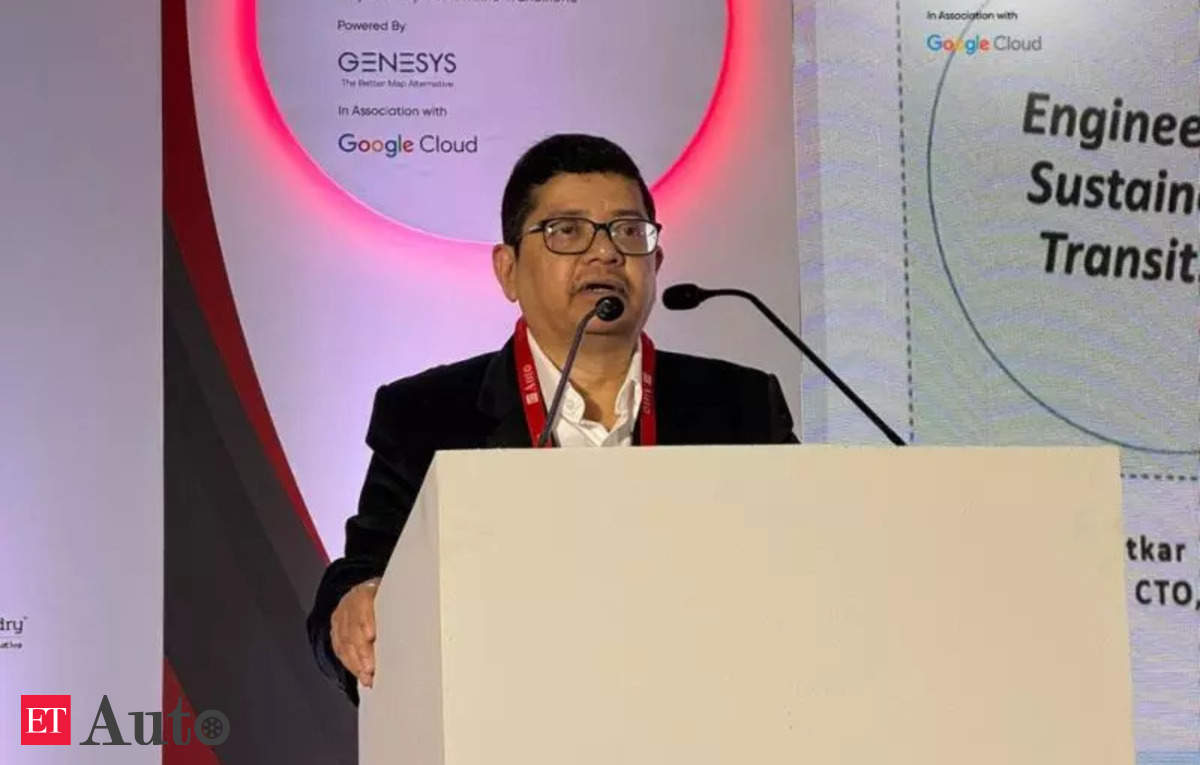Bengaluru: The future of the automotive industry will be defined by technology and software along with sustainability, industry’s top voices said at the Day 1 of the 5th edition of ETAuto Tech Summit concluded on Thursday.
The conference chair Rajendra Petkar, President & CTO, Tata Motors talked about the potential of software to build the entire vehicle architecture. “Gone are the days when the auto industry used to be hardware oriented.”
He explained how the path to sustainably is multi stepped, multi year and multi fuel in nature.
In addition to making vehicles which will bring revenue for a certain period, there is a fortune that is sitting in the downstream of the business and here software is going to play a big part, he added.
Talking about the staggering demand of electric vehicles (EVs) globally, Henrik Fisker, Founder and CEO, Fisker Inc in his Keynote Address reassured that as the vehicles are going electric, there is not going to be a going back from here on.
With decades of investments in the internal combustion engine (ICE) technology, auto manufacturers are required to continue with it to fund the fairly new and emerging space of EVs, he added.
EVs do not bring the same sensory experience as ICE vehicles do. But as we continue to develop them, we will figure out how to enhance their experience, Fisker further added.
Referring to the Indian market, Fisker noted that the country is at an inflection point for EVs. India needs to focus on two things– expand EV charging infrastructure and domestic battery manufacturing, to catch on the speed and size of EV market.
In a panel discussion on re-imagining mobility and transportation, industry experts talked about trends that will shape the future. Referring to the commercial vehicle (CV) industry, Dr N Saravanan, CTO, Ashok Leyland said that CV manufacturers need to focus on two key things– work with startups and catch up on speed to match the fast evolving space.
About moving to the software defined vehicle (SDV) era, Prashanth Doreswamy, President & CEO, Continental India stated how it opens a lot of opportunities for industry stakeholders but is a big challenge especially for traditional Tier-1 suppliers who are bound by their systems for decades.
He mentioned that while most of the use cases for technologies in the auto industry are quite complex because safety and affordability comes into the picture. This is unlike other sectors.
According to Doreswamy, three key trends for the future are going to be– sustainability, cybersecurity and vehicles having the capability of being upgraded to new systems.
Krishna Kumar G, MD, Harman India and Automotive Country R&D Lead, Harman Automotive focused on consumerization as a big trend and how it is evolving. He said that a technology can be called successful if the consumer is able to enjoy it, feel safe and be comfortable with it. But what customers should not expect at least in the next 4 years is fully autonomous vehicles in India.
Manu Saale, MD & CEO, MBRDI touched upon the need to reinvent the cars for a carbon neutral world. He also stressed on the need for mechanical engineering as a prominent course in colleges, and how it is going to stay relevant even though the vehicles are now built with a lot of electronics.
Sharing her views on circular economy for a vehicle designer, Kripa Ananthan, Head of Design at Ola Electric stated how ‘less is more’ in all stages of the product life cycle- production, use, disposal.
Kausalya Nandakumar, COO, MEAL agreed. She stated that vehicles need to be designed for manufacturing and for service so that the customer sees value for a longer time.
Dr R Mukhopadhyay, Director- R&D, JK Tyre noted the importance of technology developments for new-age tyres.






